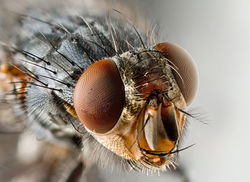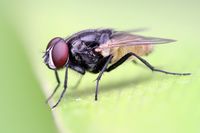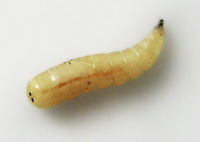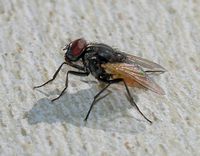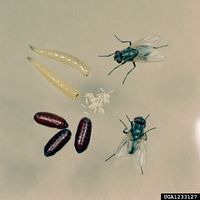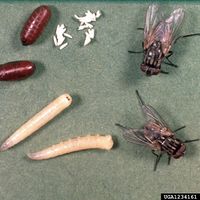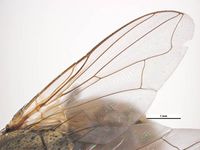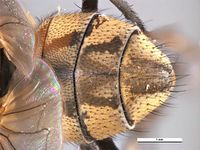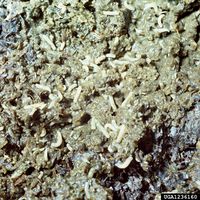Musca domestica
| Literature database |
|---|
| 778 articles sorted by: |
| • year (descending) |
| • research topics |
| • countries/regions |
| • list of antagonists |
Musca domestica Linnaeus, 1758 (house fly)
The species is a common and wide-spread pest in stables, poultries and houses. It breeds in manure and a large variety of decaying organic matter, usually in association with the human environment. It is mainly a nuisance pest, but it also transmits human and veterinary diseases through contact. These include protozoan, bacterial, helmintic and viral diseases. For example, Salmonella Typhimurium which causes gastroenteritis in humans can be excreted by house flies (Nayduch et al., 2018).
The fly feeds on liquid only which it sucks up with its proboscis. However, solid food can be liquefied by excreted saliva. The proboscis is extended during feeding only.
| Vernacular names | |
|---|---|
| • Deutsch: | Grosse Stubenfliege |
| • English: | house fly |
| • Español: | mosca doméstica mosca común |
| • Français: | mouche domestique |
The adult is about 5-8 mm long, gray with 4 darker stripes on the thorax. The female is larger than the male and has a wider gap between the eyes. The life cycle from egg, through 3 larval stages to mature adult lasts about 2 weeks.
For more details see the respective page in Wikipedia.
- Other images of Musca domestica (Wikimedia Commons, IPM Images and PaDIL - click to enlarge)
